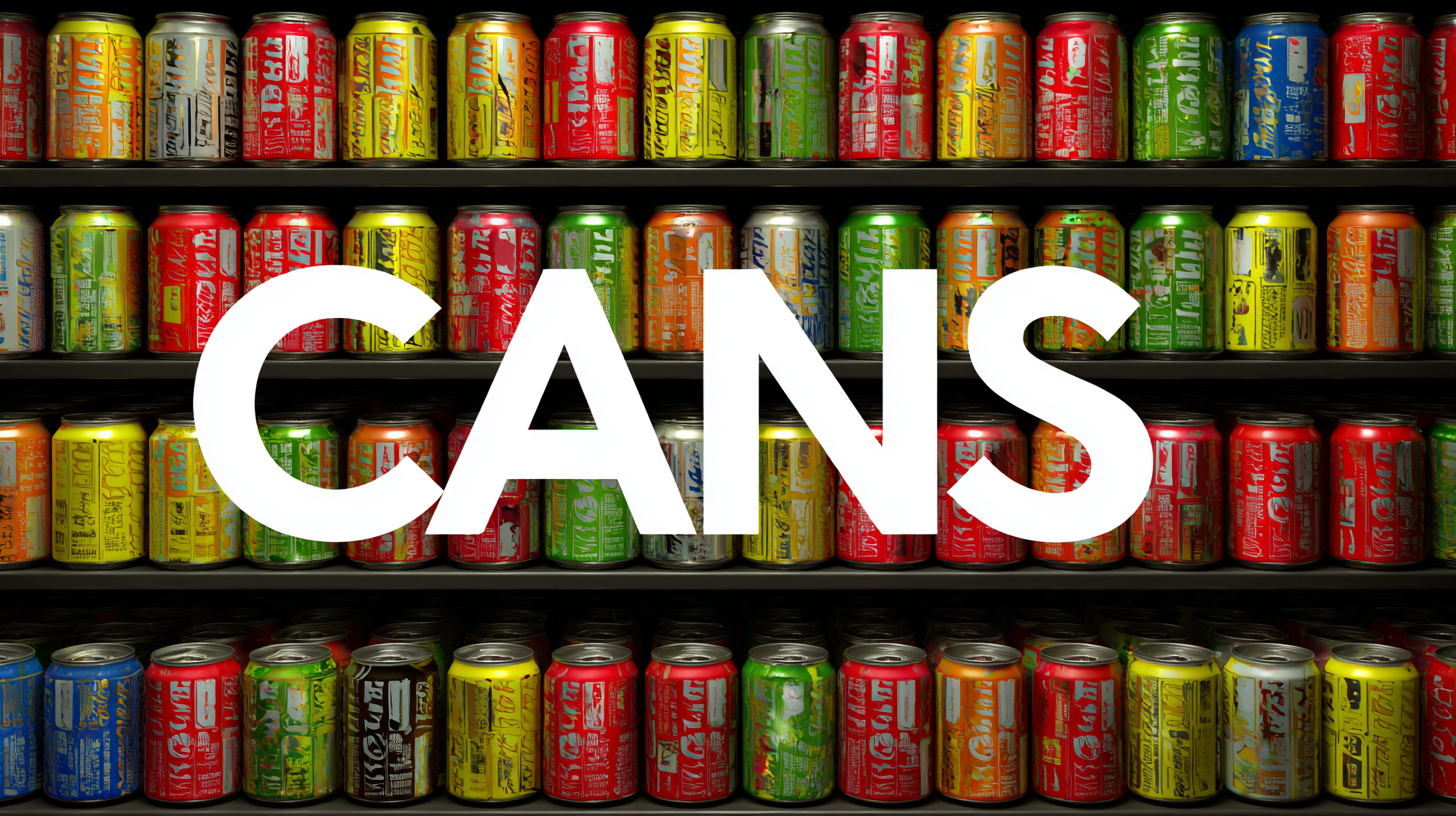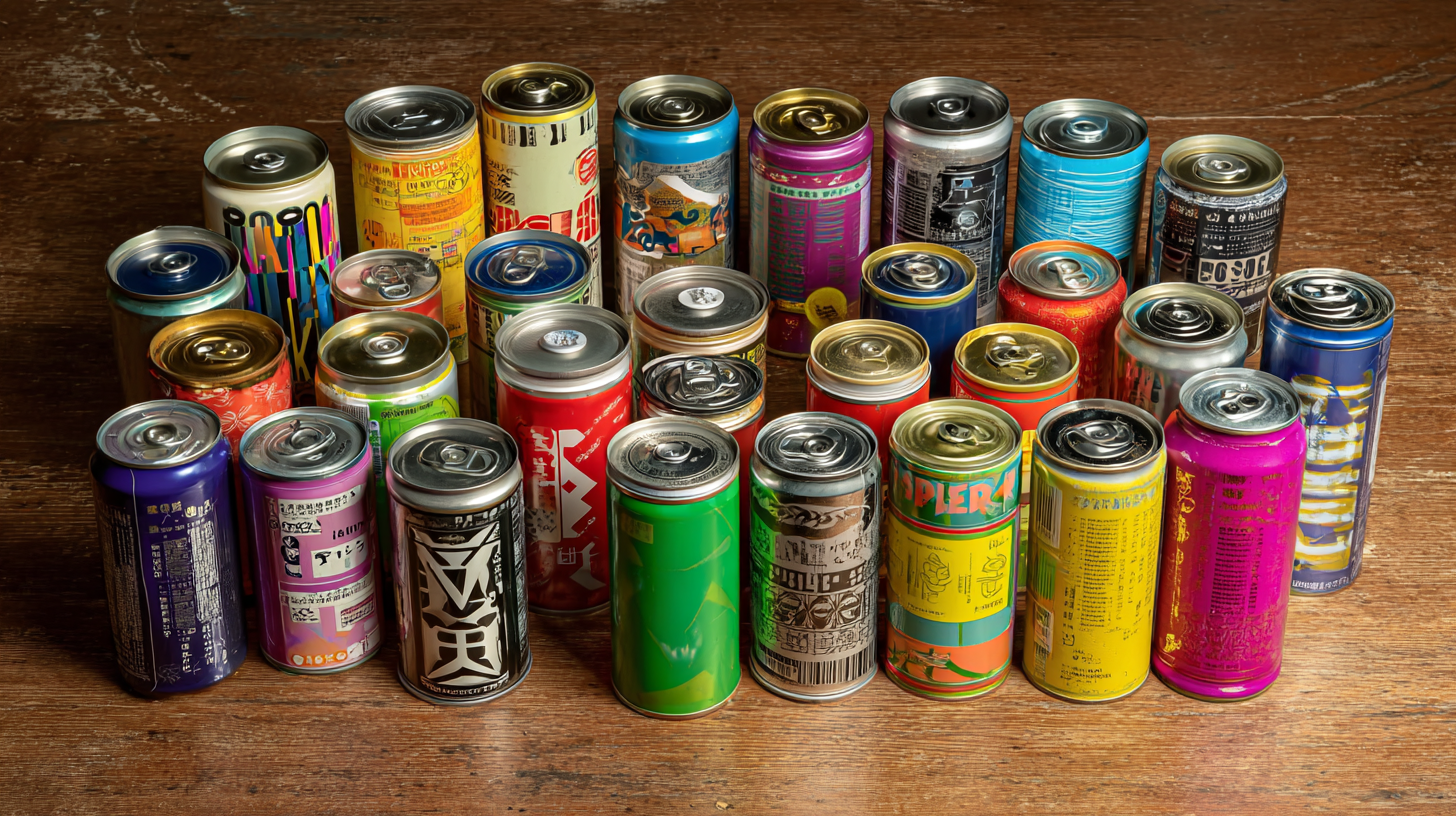 +817089618688
+817089618688
Free Standard Samples can be provided for you to check the quality.
In today's competitive market, sourcing top-quality suppliers for empty cans is crucial for businesses looking to enhance their product offerings and meet consumer demand. Empty cans serve as a fundamental packaging solution for various industries, including food, beverages, and other consumables. However, the process of finding reliable suppliers can be daunting due to the vast options available worldwide. This ultimate checklist aims to provide you with essential tips and strategies to identify and evaluate potential suppliers of the best empty cans, ensuring that your sourcing journey is both efficient and effective. Whether you are a small startup or an established company, understanding the nuances of the empty cans market will empower you to make informed decisions and establish partnerships that will elevate your brand.

When sourcing empty cans globally, several key factors must be considered to ensure you partner with top-quality suppliers. First, it is essential to assess the supplier’s production capacity and quality control processes. Look for manufacturers that adhere to international quality standards, as this significantly reduces the risk of defects and ensures that the cans meet your specific requirements. Certifications such as ISO standards can serve as indicators of rigorous quality management systems in place.
Another critical factor is the supplier's reputation and reliability in the industry. This can be gauged through testimonials, case studies, and references from other clients. Engaging with suppliers who have a strong track record of timely deliveries and excellent customer support can foster a smoother procurement process. Furthermore, geographic location should not be overlooked; sourcing from suppliers in regions with efficient logistics and shipping processes can lead to cost savings and quicker turnaround times for your orders.
When sourcing top-quality suppliers for empty cans, the key to success lies in identifying reliable partners. One of the most effective strategies is conducting thorough research on potential suppliers. Start by reviewing their company histories, product ranges, and client testimonials. Look for suppliers with a proven track record in the industry and those who adhere to internationally recognized quality standards. Engaging with industry forums and trade groups can also provide invaluable insights, helping you gauge a supplier's reputation in the market.
Another essential tip is to establish clear communication channels. Articulate your specific requirements and expectations upfront, ensuring that potential suppliers understand your needs. Prompt, transparent communication can help reveal the supplier's responsiveness and willingness to collaborate. Don't hesitate to request product samples before making significant commitments, as this will allow you to assess the quality of their cans directly. Additionally, consider visiting the suppliers' facilities, if feasible, to observe their operations and quality control processes firsthand. By employing these strategies, you can effectively narrow down your options and forge partnerships with trusted suppliers who deliver quality products consistently.
When sourcing top-quality suppliers of empty cans, evaluating quality standards is crucial to ensure the cans meet safety and effectiveness requirements. The first step is to understand the various industry standards that govern can production, such as ISO certifications and food safety regulations. These certifications reflect the supplier's commitment to maintaining high-quality manufacturing processes.
Tip: Always request documentation of quality certifications from potential suppliers. This will provide you with reassurance that the supplier adheres to recognized standards and practices.
Next, assess the materials used in the production of the empty cans. High-quality cans are typically made from food-grade materials that are free from harmful chemicals. Quality suppliers conduct rigorous testing to confirm that their products are durable and reliable, thereby ensuring your end product remains safe and visually appealing.
Tip: Inquire about the material sourcing process and request samples to evaluate the physical characteristics of the cans. This proactive approach will help you gauge the quality before making a significant investment.
By focusing on these aspects while evaluating suppliers, you can confidently select the best options for your needs.

Negotiating with can manufacturers requires a nuanced approach, informed by both industry standards and innovative strategies. As seen in international negotiations, success hinges on preparation and understanding the unique dynamics of each supplier. Engaging in productive dialogue starts with comprehensive research; knowing the manufacturer's capabilities, reputation, and market trends can give you a significant advantage. For instance, analyzing how other industries, such as pharmaceuticals, streamline negotiations can provide actionable insights. The emphasis should be on identifying shared goals to foster a cooperative negotiating environment.
Leveraging technology, such as AI-driven chat negotiations, can also enhance your negotiation strategy. Companies are increasingly utilizing automated systems to better engage with suppliers, optimizing terms and reducing costs while maintaining quality standards. This method not only improves efficiency but also allows for real-time adjustments based on supplier responses. Furthermore, employing best practices from leading companies—like developing clear communication strategies and fostering long-term partnerships—can lead to successful negotiations with can manufacturers, ensuring a steady supply of top-quality products.
| Criteria | Description | Importance (1-5) | Notes |
|---|---|---|---|
| Quality Standards | Assess if the supplier meets international quality standards such as ISO or FDA. | 5 | Verify certifications. |
| Lead Times | Evaluate the supplier's ability to deliver on time. | 4 | Consider potential delays. |
| Cost Competitiveness | Compare pricing with competitors for similar quality products. | 3 | Look for additional costs. |
| Customer Reviews | Research supplier reputation through customer feedback. | 4 | Check multiple sources. |
| Sustainability Practices | Inquire about eco-friendly practices in sourcing materials. | 4 | Consider your company's sustainability goals. |
Building lasting relationships with your suppliers is essential for ensuring a steady flow of quality products, such as empty cans, to meet your business needs. Start by fostering open communication; this means not only discussing order specifics but also seeking feedback on your collaboration. Regular check-ins can help address any issues timely and reinforce a sense of partnership. When suppliers feel heard and valued, they are more likely to go the extra mile in terms of service and quality.

Moreover, investing time in understanding your suppliers’ operations and challenges can significantly enhance your relationship. Acknowledging their workload, being flexible with deadlines when possible, and showing appreciation for their efforts builds a foundation of trust and loyalty. Consider scheduling periodic visits to their facilities, as this not only deepens your mutual understanding but also allows you to explore enhancements or innovations that could benefit both parties. These practices create a collaborative atmosphere where both sides can thrive, ultimately leading to the procurement of the best empty cans available on the market.
